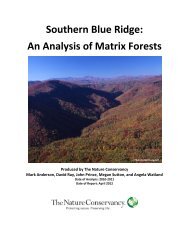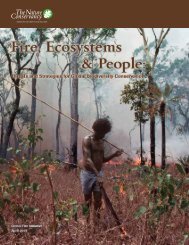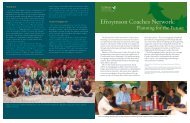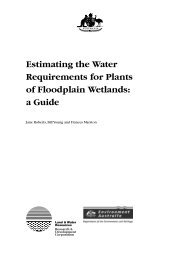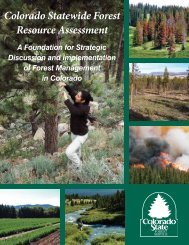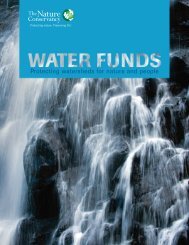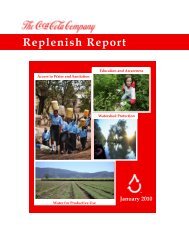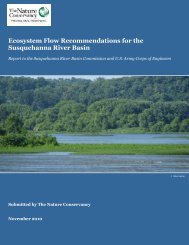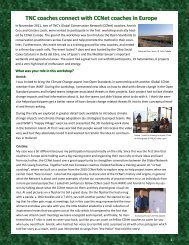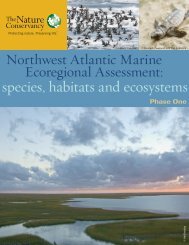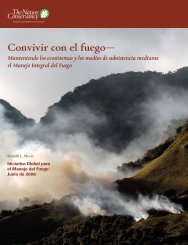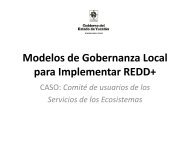Full ecoregional plan - Conservation Gateway
Full ecoregional plan - Conservation Gateway
Full ecoregional plan - Conservation Gateway
- No tags were found...
You also want an ePaper? Increase the reach of your titles
YUMPU automatically turns print PDFs into web optimized ePapers that Google loves.
Lessons LearnedAll <strong>ecoregional</strong> <strong>plan</strong>ning processes present logistical, technical, and methodologicalchallenges. Perhaps the most challenging aspect of this <strong>plan</strong>ning exercise has beencoordinating the process with 13 participating TNC Chapter Offices and HeritagePrograms. The coordination required, among other things:• joining and matching GIS data sets across all states;• creating a new community classification that “cross-walks” state classifications to theNational Vegetation Classification (NVC) and to one-another as the NVC is not thestandard in most eastern states,• coordinating productive meetings and a workable process with more than 100participants.Specifically, we offer the following suggestions for improving future iterations.• Part-time clerical assistance in the team leader’s office is required to maintainfrequent communication with all states, to assist with meeting logistics, and managepaper-flow. Information is often better conveyed by phone as many team members donot find the time to read materials.• Notify Chapter Offices and Heritage Programs, in particular, six to nine months inadvance of initiating the next iteration so that they can incorporate their participationinto their work <strong>plan</strong>s.• Maintain monthly expert team leader meetings or conference calls to evaluateprogress and share best practices and lessons learned.• Provide bi-monthly memos to all core team members on progress to date, imminentdeadlines, next steps, and action items.• Maintain frequent communications to keep team members engaged. Be sure that theirsupervisors have made their participation an annual goal and have allocated sufficienttime to be a team member.• Expert team meetings that require field staff should not be conducted during the fieldseason.• Pick expert team members well: choose more than the number you believe you willneed and extract a commitment to participate for the duration of the <strong>plan</strong>ning period.Provide a job description and an approximate time requirement.• Expert team leaders should set aside a month just for communicating with experts orvisiting with less available team members to choose and review targets, to reviewtheir regional distribution, and to research the latest taxonomic contortions forpossible inclusion in the portfolio.• A dedicated budget before work proceeds.• Practice good project management skills and keep everyone to agreed upon deadlinesto minimize rescheduling conflicts.3/2003 NEXT-3



